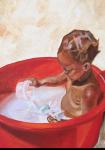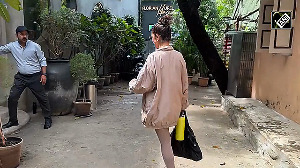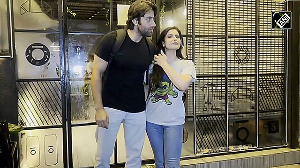Naji Meyou used to earn a good living from selling alcohol in the days when Basra's bars, casinos, cabarets and brothels were famed throughout Middle East. Now he fears his business may cost him his life.
"I don't dare sell anything now," said the grey-haired, 56-year-old, Christian alcohol merchant, peering anxiously out of the windows of his house as he poured a glass of eye-watering strong Iraqi arak. "I don't want to be killed."
Militant Islam is gaining strength in southern Iraq. Shi'ite clerics long suppressed by Saddam Hussein are now the most powerful political players in the region, and many are keen to import the austere moral regulations of neighbouring Iran.
Residents of Basra, Iraq's second-largest city, have been told to avoid alcohol and gambling or face severe punishment. Armed men shot dead two Christian alcohol dealers this month. Meyou does not want to be the next.
During the battle for Basra, looters had set both his shops ablaze and three toes on his left foot were blown off when a shell hit the building where he was sheltering. Now he spends his days lying at home in bed, under a crucifix tacked to the wall, wondering what will become of his family.
"I have three sons and a daughter," he said, rubbing his wrinkled forehead. "None of us have worked for months. We can't go on like this or we will be destitute."
In its heyday, in the 1960s and 70s, Basra was a cosmopolitan trading hub and a weekend playground for rich Kuwaitis and Saudi Arabians who flocked to its nightclubs.
But the city suffered terribly during the Iran-Iraq war in the 1980s, which destroyed the tourist trade. The 1991 Gulf War hastened its slide into poverty, isolation and obscurity.
So much so that if you search for Basra on the internet, you are more likely to end up with details on the Bahamas Air Sea Rescue Association and the Bay Area Soccer Referee Association before any reference to the once-great city of Iraq.
Meyou said Saddam shut down Basra's remaining bars in 1994, but Christian merchants were still allowed to sell alcohol for private consumption. Now, however, no one dares.
Ayatollah Mohammad Baqir al-Hakim, head of the Supreme Council for the Islamic Revolution in Iraq, told Reuters this week his followers would not target alcohol merchants.
"I don't think any religious group would carry out such actions," the powerful Shi'ite cleric said. "There are lots of gangs around and remnants of the regime who are carrying out actions to destabilise the security situation."
But Basra locals are taking no chances. The city's cinemas have been told not to show any films with 'romantic' content, and women in the city wear the black abaya dress and headscarf in public, a stark contrast with the miniskirts of past decades.
"In the old days you could do whatever you wanted in Basra," Meyou said. "They called it the Venice of the Middle East. It's a different place now and I don't feel at home here any more."






